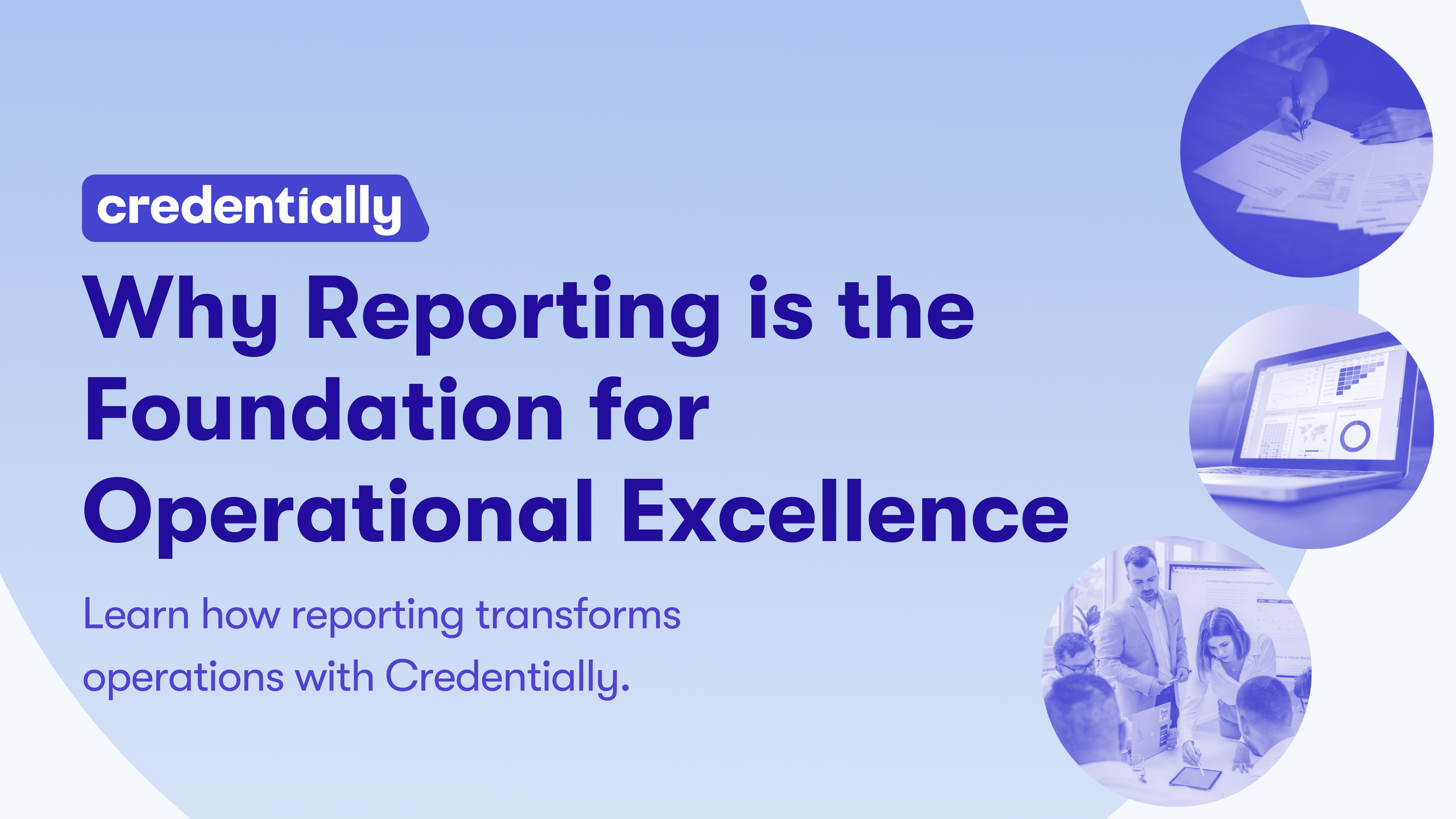
Why Reporting is the Foundation for Operational Excellence
In today’s behavioral health landscape, organizations are under increasing pressure to do more with less - deliver high-quality care, maintain compliance, reduce staff burnout, and navigate complex regulatory demands. Leaders know the stakes are high, but many still struggle to move from a reactive management approach to one that is truly proactive and data-driven.
What separates high-performing behavioral health organizations from the rest? The answer lies at the core of their operations: centralized reporting.
Reporting: The Glue That Connects the Five Pillars
Most behavioral health organizations understand the importance of compliance management, credentialing, onboarding, productivity monitoring, and audit readiness. But without centralized reporting, these functions operate in silos.
Consider this:
- Compliance teams track licensure in spreadsheets.
- HR monitors onboarding in a separate system.
- Managers assess workloads through anecdotal feedback.
- Audit prep happens in a last-minute scramble across departments.
The result? Gaps, blind spots, duplicated effort, and missed opportunities.
Centralized reporting ties all five pillars together, creating a single source of truth across the organization. With connected systems, leaders can see across compliance, credentialing, onboarding, productivity, and audit readiness in real time - breaking down silos and improving coordination.
Why Dashboards Are Game Changers
Centralized dashboards take raw data and turn it into clear, actionable insights.
Instead of sorting through spreadsheets or waiting for monthly reports, leaders can:
- Monitor compliance status across locations.
Identify onboarding bottlenecks before they slow down hiring. - Track workloads across teams to prevent burnout.
- Review credentialing progress and address delays.
- Check audit readiness at a glance, not in a panic.
Dashboards provide visual summaries that highlight trends, risks, and progress - all in one place.
As healthcare futurist Dr. Eric Topol puts it, “Data without insight is noise. But data transformed into actionable intelligence becomes the backbone of a resilient, learning healthcare system.”
The Power of Real-Time Alerts
Even with great dashboards, leaders can’t watch them all day. That’s where real-time alerts come in.
Automated notifications for:
- Upcoming license expirations
- Missed compliance tasks
- Onboarding delays
- Productivity dips
- Audit deadlines
These alerts empower managers to act before problems escalate - shifting from reactive firefighting to proactive leadership. Instead of discovering issues after they’ve caused damage, leaders get ahead of risks, protect operations, and safeguard patient care.
From Reactive to Proactive Leadership
Without reporting, behavioral health leaders spend their days putting out fires - responding to problems as they arise, patching gaps, and hoping nothing critical was missed.
With centralized reporting, leaders shift their focus:
- From fixing problems to preventing them
- From managing chaos to driving improvement
- From disconnected teams to coordinated performance
- From guessing to knowing
This shift doesn’t just improve efficiency - it improves staff satisfaction, patient outcomes, financial performance, and organizational resilience.
Join Us for a Live Demo
Want to see how real-time reporting can transform your behavioral health operations?
We’re hosting a live demo to show how centralized dashboards and alerts help behavioral health organizations:
- Improve compliance and audit readiness
- Accelerate credentialing and onboarding
- Reduce staff burnout
- Strengthen operational decision-making
Book a demo with us to find out more.
.svg)
.svg)
.svg)